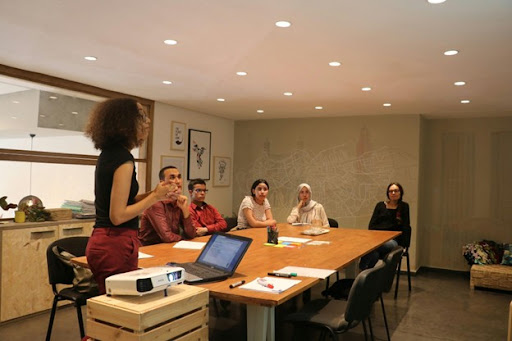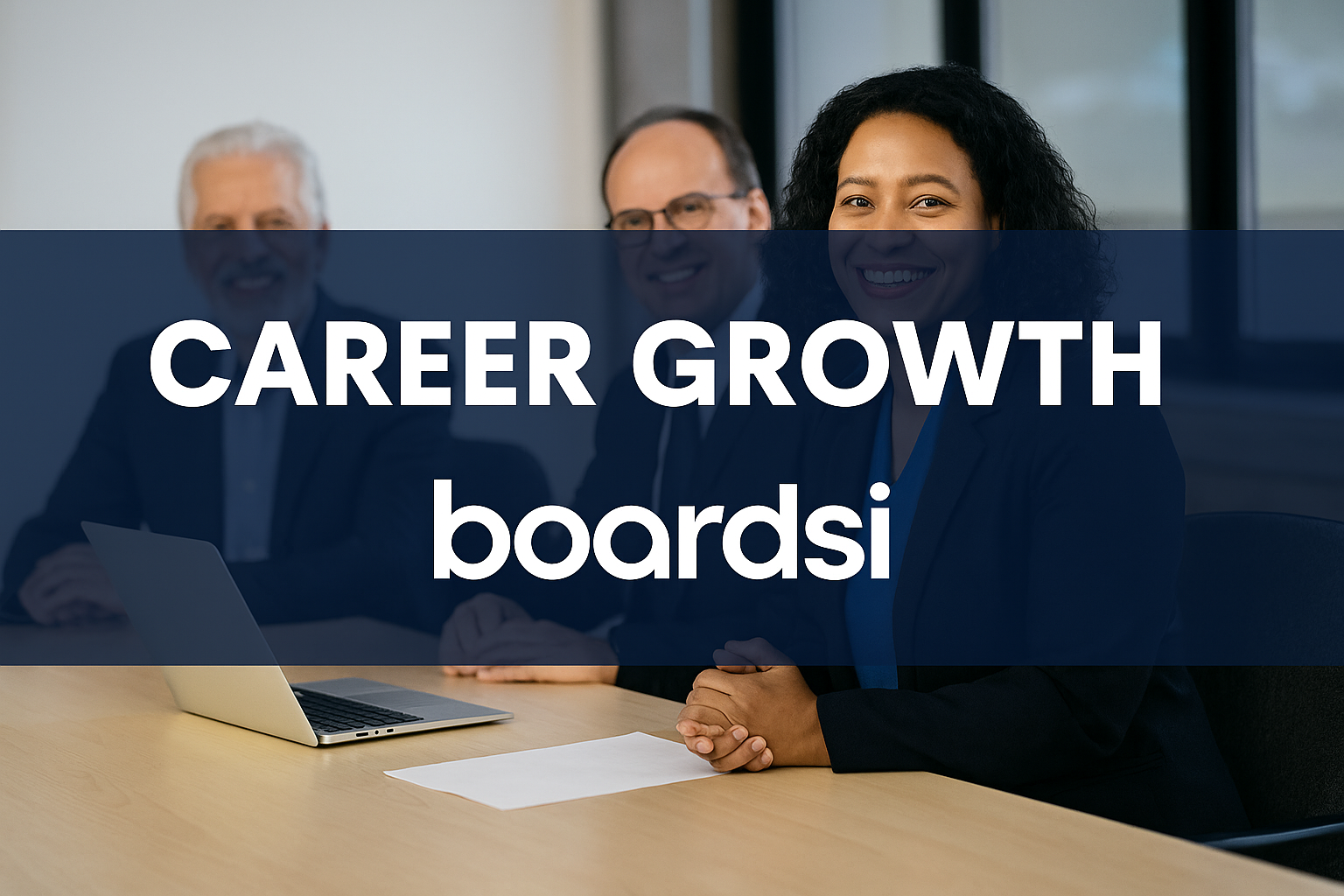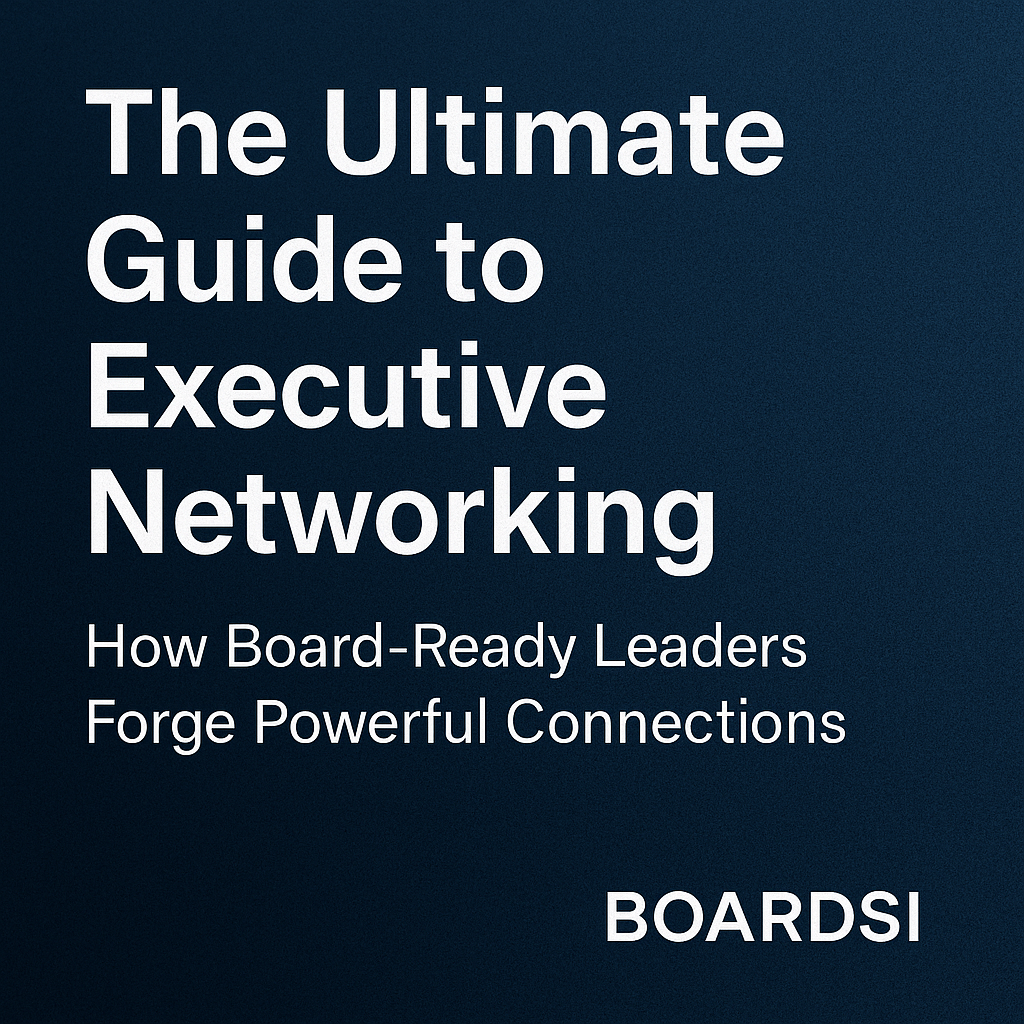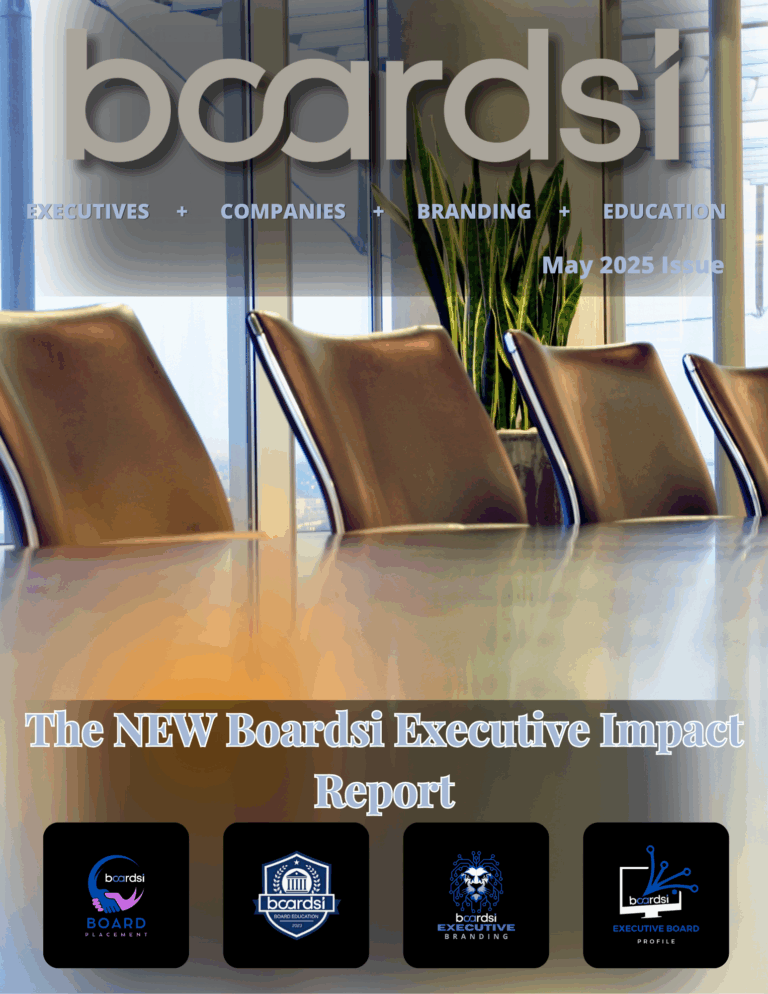Leadership renewal is a balancing act that every board faces at some point. The need for fresh perspectives is clear, but so is the value of retaining seasoned expertise. Boards that fail to adapt to risk stagnation, while those that overhaul too quickly may lose critical institutional knowledge. Striking this balance is an opportunity to position organizations for sustainable growth and strategic agility.
Leaders from Boardsi, a firm that’s revolutionized the way companies and executives connect for board recruitment, discuss how refreshing leadership thoughtfully allows boards to blend innovation with experience to meet evolving organizational demands.
The Necessity of Leadership Renewal in Modern Boards
Refreshing leadership within boards is a necessity for staying competitive in an ever-shifting business environment. Effective boards understand that renewal requires reinforcing strengths while addressing gaps. By selectively integrating new members with fresh perspectives, organizations ensure they remain agile, forward-thinking, and prepared to face emerging challenges. Leadership renewal, handled with foresight, becomes a strategic investment into the organization’s future.
“Markets today are shaped by rapid technological advancements, evolving customer expectations, and unpredictable global trends,” says a Boardsi executive. “Boards must respond to these forces with agility and clarity, and renewed leadership plays a central role in making this possible. Leaders who bring contemporary experiences and innovative approaches enable organizations to anticipate and navigate market shifts more effectively.”
A refreshed board brings the ability to identify upcoming trends and recalibrate strategies when consumer needs or business environments change. For example, younger leaders may possess deeper insights into technology-driven transformations, providing expertise in areas such as digital platforms or sustainability initiatives. At the same time, directors with diverse industry experience can introduce tested approaches for managing disruption in competitive markets. Without such fresh insights, boards risk relying on outdated strategies that no longer align with current realities.
Renewing a board encompasses incorporating fresh ideas and varied perspectives. Diversity, in all its forms, is among the greatest strengths a board can possess when undergoing leadership renewal. Boards that include individuals from different professional backgrounds, ages, genders, ethnicities, and cultural experiences make better decisions and foster innovation.
By bringing together individuals with distinct viewpoints, a renewed board can evaluate challenges from multiple lenses. This leads to more thorough discussions where risks and opportunities are identified more clearly. Research has consistently shown that diverse boards outperform homogeneous ones, as the range of perspectives often results in creative and effective problem-solving.
Notes a Boardsi leader, “Diversity within leadership renewal encourages organizations to shed unintentional blind spots.”
Traditional boards may inadvertently favor strategies that cater to long-established norms. Infusing diversity into leadership helps overcome this bias, ensuring decisions align with the expectations of modern stakeholders, including employees, customers, and shareholders. Ultimately, leadership renewal that prioritizes inclusivity drives progress rather than maintaining the status quo.
Balancing Renewal with Retained Expertise
Refreshing leadership on a board requires careful planning to ensure that fresh talent integrates seamlessly while maintaining the stability and wisdom of veteran members. If handled poorly, transitions can result in a loss of institutional knowledge or disrupt the board’s strategic focus. However, with thoughtful strategies and mentorship in place, it is possible to achieve a balance that preserves expertise while welcoming new perspectives.
When changing parts of a board, deliberate onboarding processes can help bridge the gap between outgoing and incoming members. A smooth transition ensures that new leaders contribute effectively without weakening the organization’s foundation. One essential strategy is to establish a clear timeline for leadership changes. This allows for enough overlap between outgoing and incoming members, ensuring that knowledge and priorities are passed down effectively.
Organizations should also provide onboarding programs tailored to the new member’s background and responsibilities. These programs might include comprehensive briefings on historical decisions, financial reports, and strategic goals. Pairing new members with a liaison from the current board can also help them acclimate more quickly and feel more connected to the team.
Encouraging collaboration during the transition phase fosters mutual respect among board members. For instance, joint sessions between outgoing and incoming leaders provide valuable opportunities for dialogue.
These meetings allow new members to ask questions, seek clarity, and understand the team dynamics without hesitation. The result is a smoother adjustment to their roles and a stronger alignment with the board’s mission.
Leveraging Mentorship for Continuity
Mentorship offers a practical approach to maintaining stability during a leadership renewal. Outgoing board members possess a wealth of institutional knowledge, and mentorship programs can ensure that this wisdom is not lost in the shuffle. By pairing departing leaders with their incoming counterparts, organizations create a natural pathway for knowledge transfer.
Mentorship relationships enhance continuity by allowing new members to benefit from the expertise of their predecessors. For example, outgoing leaders can provide insights into the challenges and opportunities the organization has faced, as well as advice on potential pitfalls to avoid. This proactive exchange often results in fewer missteps and a faster learning curve for new members.
In addition to sharing tactical knowledge, mentors can provide guidance on navigating organizational culture. Each board has its unique rhythm, traditions, and unspoken rules. A mentor can offer context that helps new members adapt to these nuances, ensuring they contribute effectively from day one. Mentorship also fosters connections that build trust and camaraderie within the board, strengthening the group dynamic in the long term.
“By combining structured transition strategies and robust mentorship programs, boards can refresh their leadership without eroding the experience and institutional memory that are critical to strategic success,” says a Boardsi leader.
Boardsi’s Approach to Strategic Leadership Refreshment
Boardsi specializes in strategic board renewal by identifying leaders who bring fresh perspectives while preserving institutional knowledge. Its customized approach ensures candidates align with an organization’s mission, culture, and strategic goals. Through a vast network, Boardsi selects individuals with the right expertise, emphasizing cultural fit and diversity to enhance leadership effectiveness.
To maintain stability, Boardsi advocates gradual transitions and mentorship programs, facilitating seamless knowledge transfer between seasoned and new members. By blending experience with innovation, Boardsi helps organizations build dynamic, forward-thinking leadership teams equipped to navigate today’s evolving business landscape.
Boards that embrace leadership renewal position themselves for sustained growth and strategic agility. The process leans into enhancing the past with the right blend of fresh perspectives and retained expertise. When managed thoughtfully, leadership transitions not only safeguard institutional knowledge but also infuse innovation and adaptability into decision-making processes.
Boardsi’s commitment to balancing innovation with continuity is key to its success in guiding organizations through these transitions. By tailoring strategies that align with each board’s mission and culture, Boardsi ensures leadership renewal strengthens organizational stability while unlocking new opportunities for progress. For boards ready to modernize without compromise, Boardsi offers a forward-thinking approach that drives meaningful results.
#LeadershipRenewal #BoardLeadership #DiversityInLeadership #StrategicAgility #OrganizationalGrowth #Mentorship #BoardGovernance #InnovationLeadership #SuccessionPlanning #LeadershipTransition #InclusiveLeadership #FutureReady #CorporateStrategy #Boardsi









